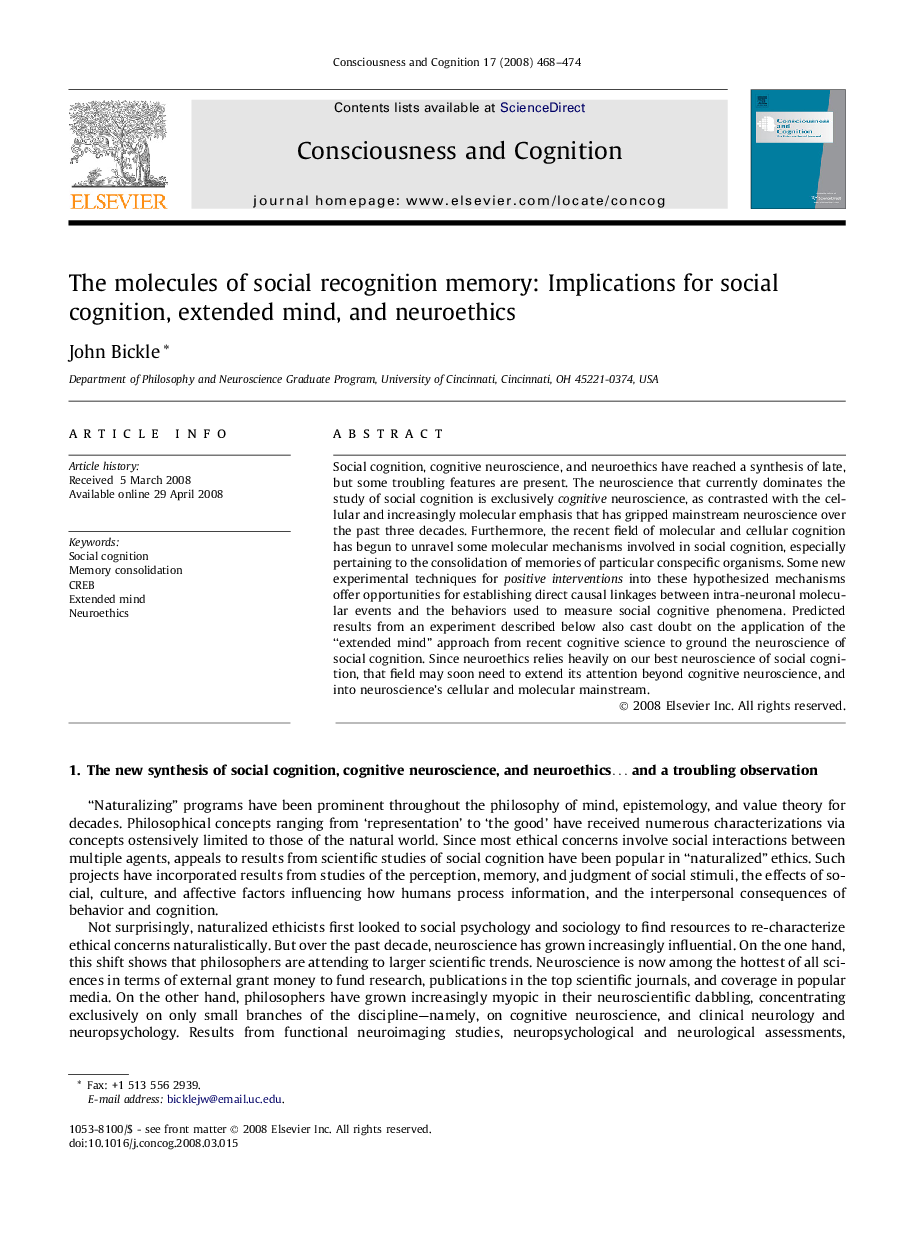| Article ID | Journal | Published Year | Pages | File Type |
|---|---|---|---|---|
| 927663 | Consciousness and Cognition | 2008 | 7 Pages |
Social cognition, cognitive neuroscience, and neuroethics have reached a synthesis of late, but some troubling features are present. The neuroscience that currently dominates the study of social cognition is exclusively cognitive neuroscience, as contrasted with the cellular and increasingly molecular emphasis that has gripped mainstream neuroscience over the past three decades. Furthermore, the recent field of molecular and cellular cognition has begun to unravel some molecular mechanisms involved in social cognition, especially pertaining to the consolidation of memories of particular conspecific organisms. Some new experimental techniques for positive interventions into these hypothesized mechanisms offer opportunities for establishing direct causal linkages between intra-neuronal molecular events and the behaviors used to measure social cognitive phenomena. Predicted results from an experiment described below also cast doubt on the application of the “extended mind” approach from recent cognitive science to ground the neuroscience of social cognition. Since neuroethics relies heavily on our best neuroscience of social cognition, that field may soon need to extend its attention beyond cognitive neuroscience, and into neuroscience’s cellular and molecular mainstream.
